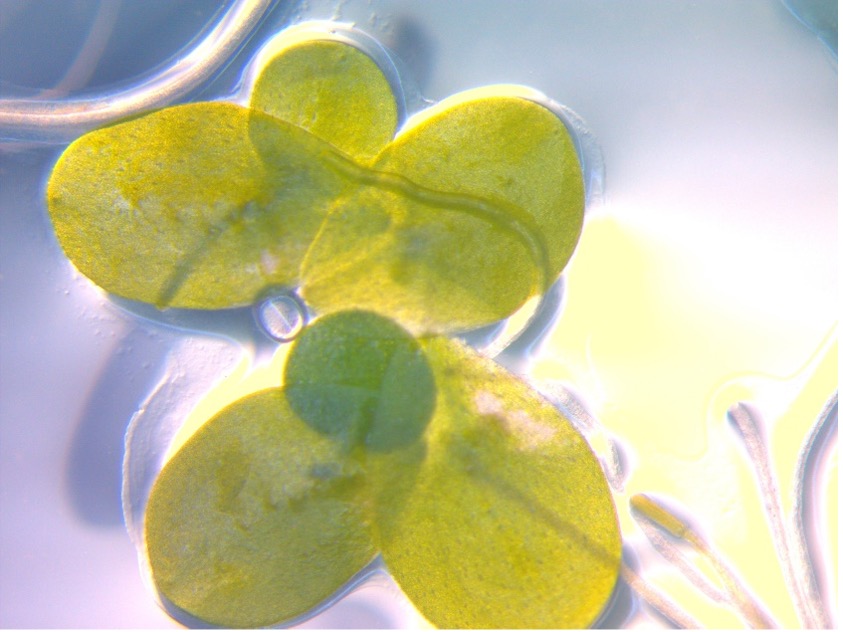Duckweeds are not only fascinating subjects for environmental physiology but also edible and nutritious, with potential for farming applications in small spaces. We are studying physiological responses across duckweed genera whilst searching for properties beneficial for vertical farming and space missions where resources can be recycled and controlled. Their small size and fast growth rate make them highly attractive. We are investigating how duckweed growth, nutritional and flavour properties can be manipulated by altering light intensity and spectra. We are also exploring using duckweed as a chassis for synthesising valuable metabolites.
Our Students

Nigel Vermonden
My name is Nigel, and I am a PhD student in the Nottingham-Adelaide joint PhD program. I am a Kiwi, but I completed my undergraduate degree at La Trobe university in Australia, there I discovered I loved the practise and potential of plant biotechnology. I want to use this technology to help with some of humanities big projects, space travel is one of those big projects. Being a small part of getting humans back out into space is an amazing prospect, so working on nutritional enhancement of space grown plants is a small part of making that happen.
The current aim of my PhD project is to enhance the nutritional content of Duckweed. However, we have discovered that these plants are remarkably resistant to genetic modification. So, our immediate objective is to develop a method of gene delivery that will work across the multiple species and genera of duckweed. Once this is established, we can begin to introduce nutritional qualities that will make this remarkable little plant a success that will be out of this world!
Robert Rintoul
I completed my undergraduate degree at the University of Glasgow, where I became interested in how plants perceive their light environment - particularly in how spectral quality results in physiological changes. This lead me to my PhD project which focuses on growing duckweed using various LED lighting strategies to optimise growth, nutrition and flavour to feed astronauts during long term space missions. I am a joint student between the University of Nottingham and University of Adelaide.
Duckweed is of particular interest in astrofarming as it has great potential as a sustainable, fresh and fortifiable food source. As part of a cyclical system, duckweeds would be harvested and consumed by crew members providing essential macro- and micro-nutrients. Astronaut waste would then be recycled to support continuous growth of fresh food. Exhaled CO2 would be concentrated in plant facilities, boosting food production and supporting oxygen conversion. Additionally, it has been shown that astrofarming supports crew mental health- due to enrichment in their daily tasks as well as in combatting dietary fatigue.
As part of the optimization process required for astrofarming, different light environments are being investigated for use in duckweed food production. LEDs can be used to alter the intensity, photoperiod and wavelengths of light – with my work attempting to ‘program’ duckweed growth; altering growth rates, pigment composition and volatile compounds to result in changes to overall biomass production, nutritional quality and flavour. Of particular importance to my project is the use of chlorophyll fluorescence for the non-invasive assessment of photosynthetic parameters, which in turn are used as indicators of plant performance. Further interests include characterization of duckweed stomata and measuring duckweed whole plant respiration. I am also part of the Plants4Space research consortium, which is directly linked with NASA’s Artemis III mission, proposed for 2026. This mission will land both astronauts and duckweed on the moon. The astronauts are just going for a jolly; however, the duckweed will be under rigorous scientific investigation as part of the Lunar Effects on Agricultural Flora (LEAF) payload. Measurements will focus on both growth and photosynthetic parameters of duckweeds whilst under the effects of partial gravity and cosmic radiation - providing valuable insight into plant cultivation on the lunar surface.

Sam Wadey
To address global nutritional deficiencies, the exploration of novel food sources is imperative. Among these, duckweed shows promising potential as a protein-rich alternative. However, limited understanding exists regarding the variation and genetic mechanisms underlying its nutritional content. My project aims to investigate how duckweed adapts to increasing temperature conditions and examine the consequential impact on protein content and essential amino acids. By unraveling the genetic control and variation of nutritional traits in duckweed, this study will contribute to our understanding of its potential as a sustainable food source amidst evolving environmental conditions.